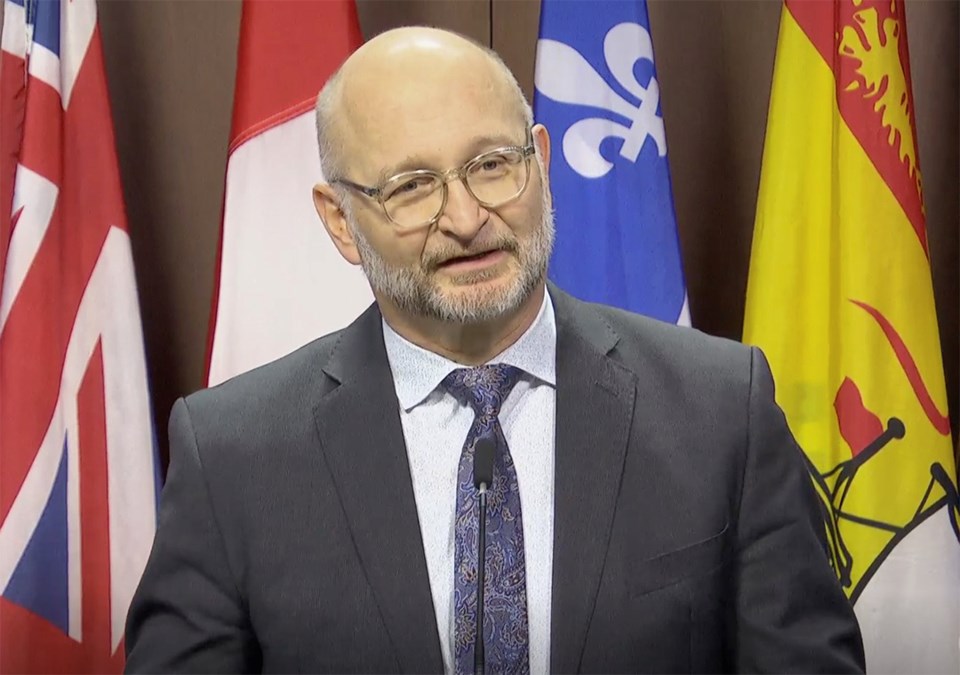Being the leader of a political party in Canada isn't easy.
You not only have to look out for the best of the party – and convince the public that you have the best of the province or country in mind – but you also have to be wary of the comments and the conduct of people within the party.
A foolish comment – whether it be from a cabinet minister, an elected official or a staffer – can become fodder for other parties, who will not only use such comments to attack, but portray the remark as a reflection of the party as a whole.
That was the situation faced by Prime Minister Justin Trudeau following an absurd statement by Justice Minister and Attorney General David Lametti.
Lametti said earlier this month that he would look at the Natural Resources Transfer Act, a law that is nearly a century old and gives control over natural resources to the four western provinces.
He made the comment to the Assembly of First Nations. Some of their members want the act repealed. But his statement was as popular in the west as you would expect. People hated it.
Conservative Party leader Pierre Poilievre and the premiers of Alberta, Saskatchewan and Manitoba blasted Lametti about the comments.
Even if Lametti was speaking for himself when it comes to this issue, and even if he was just thinking out loud, the Liberals don't exactly have the greatest record when it comes to respecting provincial jurisdiction. (Witness the carbon tax). So, you can understand why there was a lot of apprehension when he made the remarks.
Trudeau has since tried to ease concerns, saying the Liberals are not going to open discussions about the agreement. But he also took the chance to slam the three Prairie premiers and the Conservative leader regarding their reaction to Lametti's take.
Regardless, it's a foolish comment made by a high-ranking cabinet minister who should know better.
(Lametti could take a lesson from Jody Wilson-Raybould on how to be an effective justice minister and attorney general).
We don't know what was said behind closed doors between Trudeau and Lametti after the remarks. We don't know if Trudeau and other higher-ups within the Liberal party gave Lametti the harsh rebuke he so richly deserved.
Trudeau should have distanced himself and the party from Lametti's remarks sooner. They became a distraction, and the PM had to answer questions about this issue during his recent tour of Western Canada, when he was hoping to talk about the federal budget and the affordability measures that the document contained.
The justice minister and attorney general portfolio is an incredibly difficult one for a party to fill, but the Liberals should be actively looking for Lametti's replacement in the next cabinet shuffle.
Sadly, Lametti's gaffe likely won't change anything at the polls in the next election. The comments have been panned in Alberta, Saskatchewan and Manitoba, but those are areas that will largely vote Conservative over Liberal. Outside of Winnipeg and Edmonton, the Liberals don't have much support in the Prairies.
Those who live in southern Ontario, Ottawa, the Montreal-Quebec City corridor and the Lower Mainland of B.C. likely won't be too concerned with Lametti's comments, the ensuing furor or the ramifications. They have their own issues that they are concerned with.
We'll see whether there is much of an impact on private-sector investment. Oil and gas companies don't exactly have a lot of confidence in the government as it is. Such a dim remark by a high-ranking cabinet minister isn't going to help. They might view this as another reason to avoid Canada and its current government. They might wonder how many in the Liberal party, and Trudeau's inner circle, share Lametti's opinion.
Trudeau can't allow Lametti's remark go unpunished. A simple "We're not looking to do this" isn't enough.



